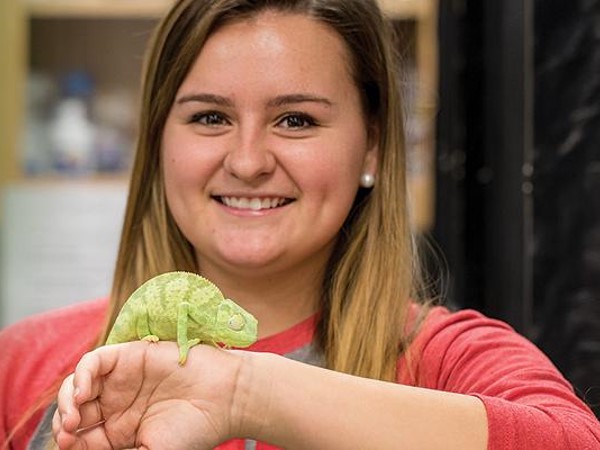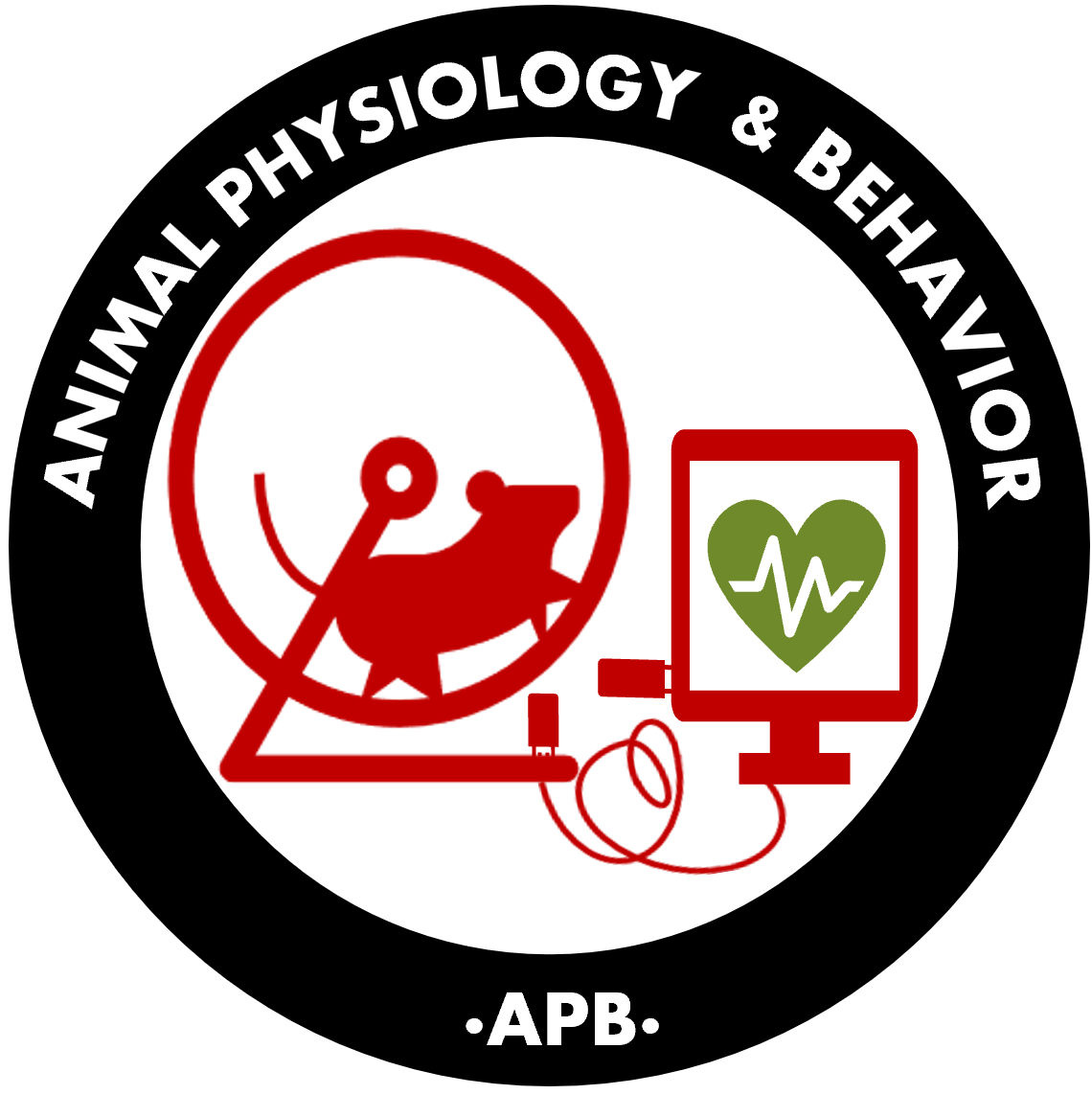Animal Physiology & Behavior Concentration
Find Your Field in Animal Physiology & Behavior
- Study the way animals behave and try to determine what causes certain types of behavior and what factors can prompt behavior change.
- Work in laboratories or in the field. Also, in zoos, wildlife sanctuaries, nature reserves, and amusement parks. Work as a pet trainer or for the film industry training animals.
- A minimum of a bachelor's degree in biology, but a graduate degree is often preferred.
- Average Annual Salary: $66,350 for zoologists and wildlife biologists, $99,250 for veterinarians in scientific research, $79,220 for animal scientists in research and development
- 5% growth rate for zoologists and wildlife biologists, 10% for veterinarians in scientific research, and 17% for animal scientists.
- More labor statistics for this sector...
- Study how animals function and how they interact with their environment.
- Work in animal laboratories or in the field. Also, in zoos, wildlife sanctuaries, nature reserves, and amusement parks.
- A minimum of a bachelor's degree in biology, but a graduate degree is often preferred.
- Average Annual Salary: $58,974
- More labor statistics for this sector...
- Zookeepers care for animals in zoos by planning their diets, feeding them, and monitoring their health.
- Zookeepers work in zoos, wildlife sanctuaries, nature reserves, and amusement parks.
- A minimum of a bachelor's degree in biology, but a graduate degree is often preferred.
- Average Annual Salary: $33,895-$49,579
- More labor statistics for this sector...
- Zoologists similar to wildlife biologists in the EWC Concentration) conduct research and studies animal behavior and ecosystems, often with a focus on conservation efforts.
- They work in research organizations, universities, zoos, wildlife parks, or aquariums.
- Zoologists often have a Master's or a Ph.D.
- Average Annual Salary: $70,600.
- Employment of zoologists and wildlife biologists is projected to grow 4 percent from 2023 to 2033, about as fast as the average for all occupations.
- More labor statistics for this sector...
- Aquarists work on feeding, cleaning, monitoring, and treating aquatic organisms.
- Work in aquariums, zoos, wildlife sanctuaries, nature reserves, and amusement parks.
- A minimum of a bachelor's degree in biology is required, but a graduate degree is often preferred.
- Average Annual Salary: $31,289
- More labor statistics for this sector...
- Translational science, also known as translational research or translational medicine, involves translating laboratory and clinical research to improve the health and well-being of patients and communities.
- Most translational scientists are medical doctors who earn additional qualifications that allow them to make structured, scientifically supported observations in their clinical practice.
- Many complete an MD-PhD Program.
- Average Annual Salary: $115,000
- More labor statistics for this sector...

Wildlife Technician
Research Technician
Animal Trainer/Handler
Vet Technician
Animal Adoption Specialist
Zoologist
Zookeeper
Aquarist
Animal Rehabilitator
Museum Display Coordinator
Science Diver (SCUBA)
Agency/Research Scientist
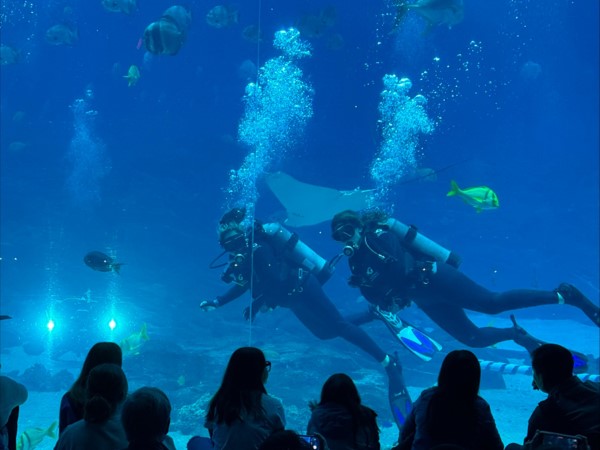
Private Biotech Companies
Research Institutes
Pet Training Companies
Veterinary Clinics
State/Federal Agencies
Animal Research Facilities
Humane Societies
Universities
Zoos/Aquariums
Museums
Animal Rehabs
Outreach Centers
Bureau of Labor Statistics, U.S. Department of Labor, Occupational Outlook Handbook, Life Science Occupations
Know Your Path in Animal Physiology & Behavior
Biology & Science Core
Cells, Metabolism, & Genetics + Lab • Ecology, Evolution & Diversity + Lab • Algebra • Biophysics + Lab • Chemistry + Lab • Professional Aspects of Biology
APB Requirements
Animal Biology & Diversity • Evolution • Genetics + Lab • Statistics or Calculus • Animal Physiology • Animal Behavior (3) BIOL 335 • Neurobiology or Animal Form & Function or Endocrinology
APB Biology Electives
[Students select 3-4 of these courses, based on their own interests, including any from the list above not taken as a requirement. Other choices include the below]
Ecology • Comparative Anatomy • Introductory • Biostatisticss • Biochemistry • Biochemistry Lab • Cooperative Education in Biology • Independent Research in Biology
APB Example Courses for Selection: General Education Requirements
Our Dynamic Planet • Challenges of a Changing Biosphere • Developmental Psychology • Introduction to Psychology • Causes and Consequences of Human-Wildlife Conflict
This concentration has allowances for an added minor or certificate.
These would pair well:
Find Your Place in Animal Physiology & Behavior

The Biology Department has many student organizations to choose from. Tri-Beta Biological Honor Society is a good choice for APB students. TriBeta connects you to a community of biology students, but membership has many other benefits, like scholarships, travel, and research.

There are many opportunities to participate in research as an undergraduate in our department, from physiology to behavior, and from fish (including lampreys) to birds and chameleons. Our undergrads regularly present at conferences and contribute to new discoveries! Find an ABPP lab today!
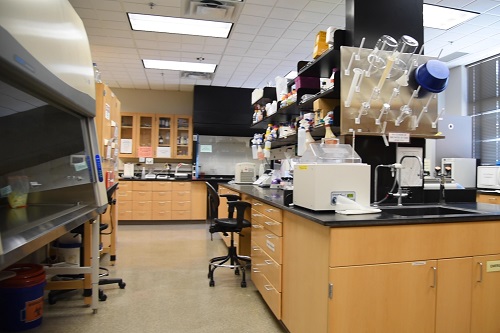
The Biotechnology Center at Western Kentucky University was established to facilitate hands-on educational opportunities for Biology students and to provide technical and educational services and faculty research. The Biotechnology Center is a part of Western's Applied Research and Technology Program.

The mission of the KAS is to catalyze scientific communication and collaboration that will improve research, education, and evidence-based public engagement within the Commonwealth of Kentucky. Select: Membership >> Become a Member >> Join Online Now. On the form, select WKU as your institution and use your WKU e-mail.

The mission of the center is to provide state-of-the-art microscopy capabilities with four microscopes: Scanning Electron Microscope (SEM), Large Chamber – Scanning Electron Microscope (LC-SEM), Atomic Force Microscope AFM) and a brand new Laser Scanning Confocal Microscope LSCM).
An internship is a great way to get hands-on exposure to different disciplines within biology. Internships can help you decide if your chosen career is right for you! They provide experiential hours required by many professional societies and you can get upper-level biology credit (BIOL 369).
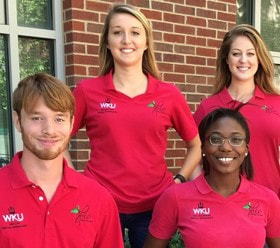
Biology Ambassadors are an elite group of students who assist with recruitment, retention, and advising. They help prospective students and visitors understand that the Biology Department is truly an exceptional place by interacting with perspective students and the public.

BioCoaches are talented upper division students that serve as peer mentors and learning assistants in our introductory courses. Serving in BIOL 120 or 122 would be good for APB students, and you'll receive course credit for playing a vital role in student success.
Some of the links on this page may require additional software to view.


